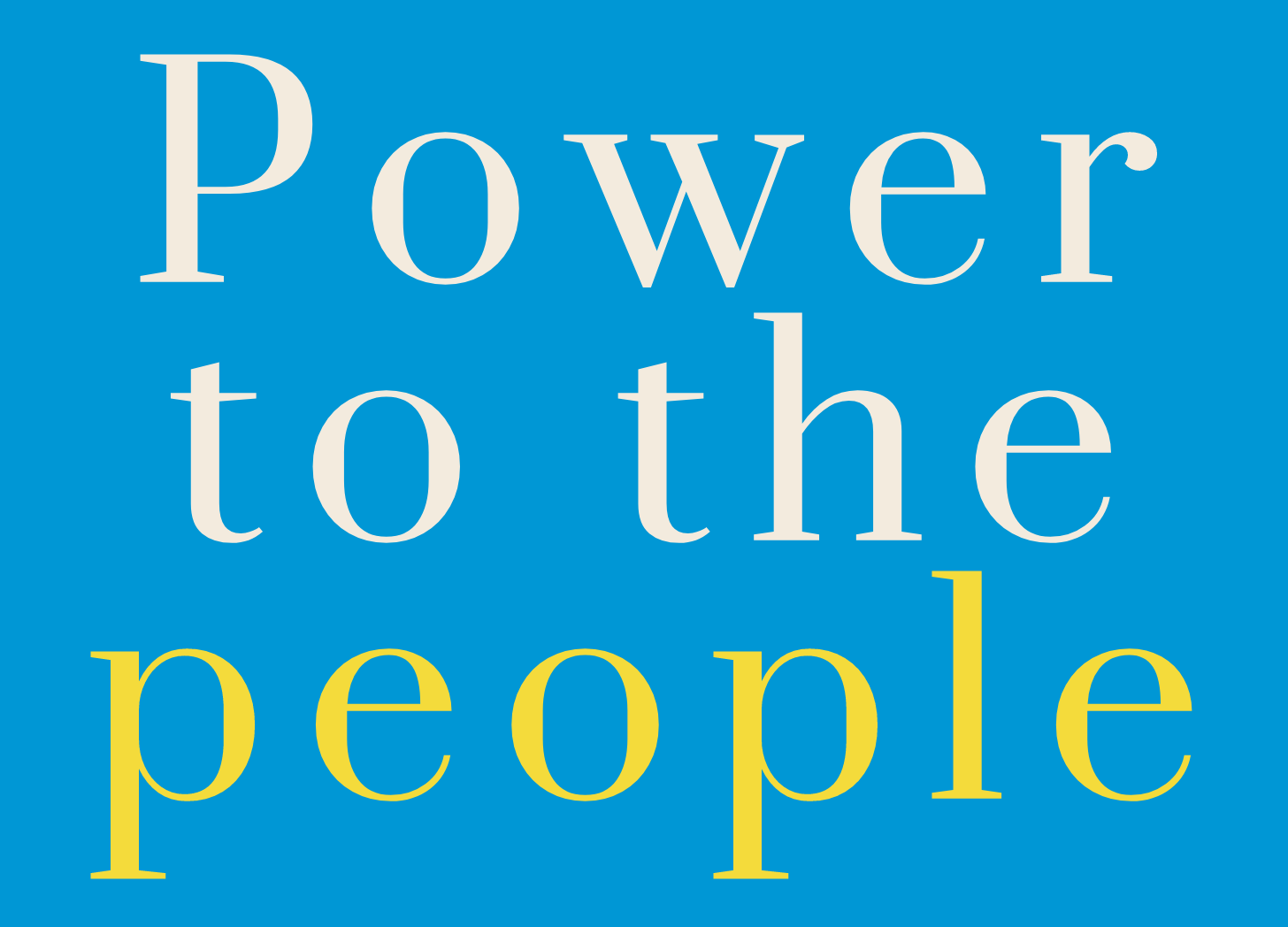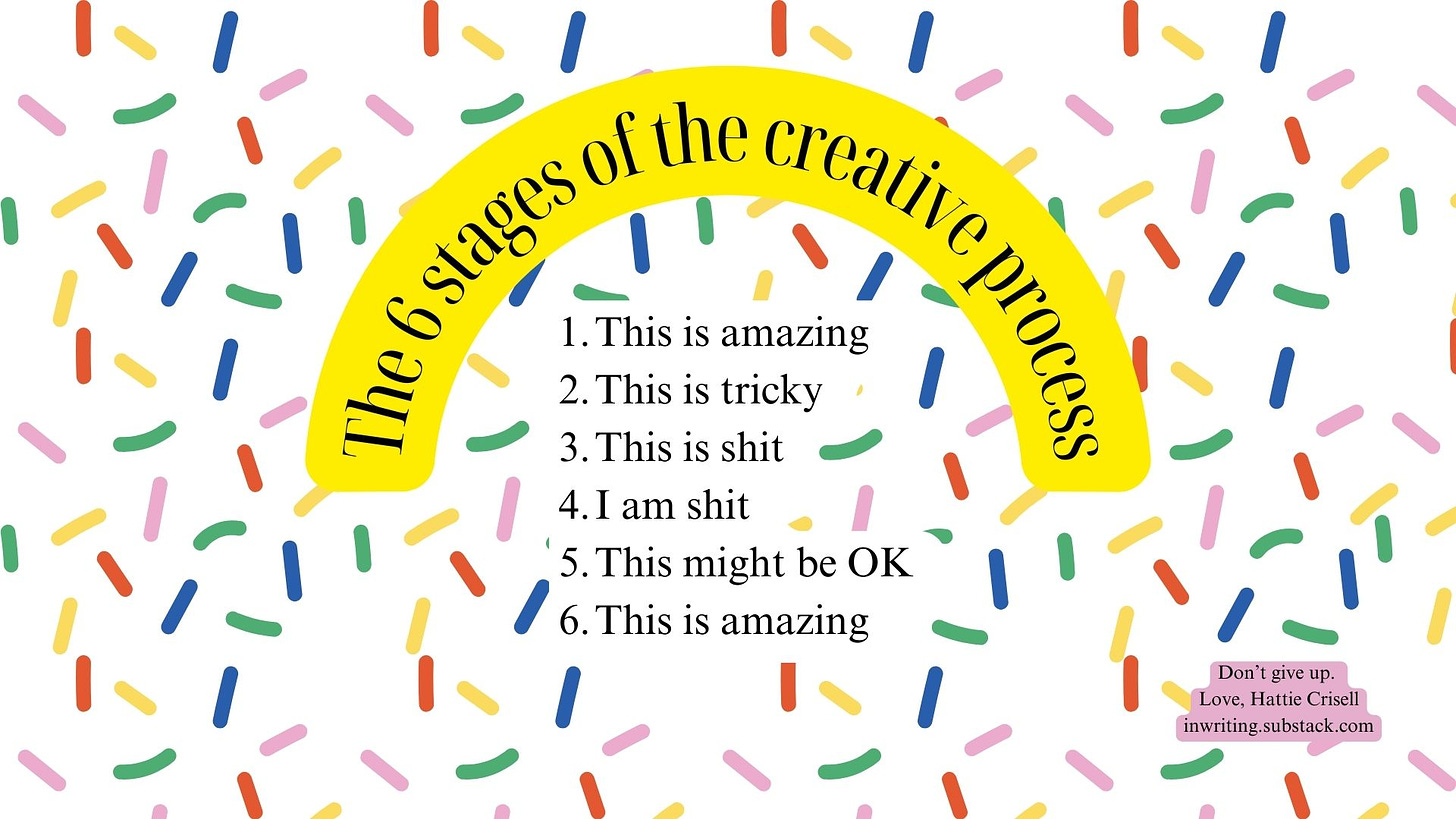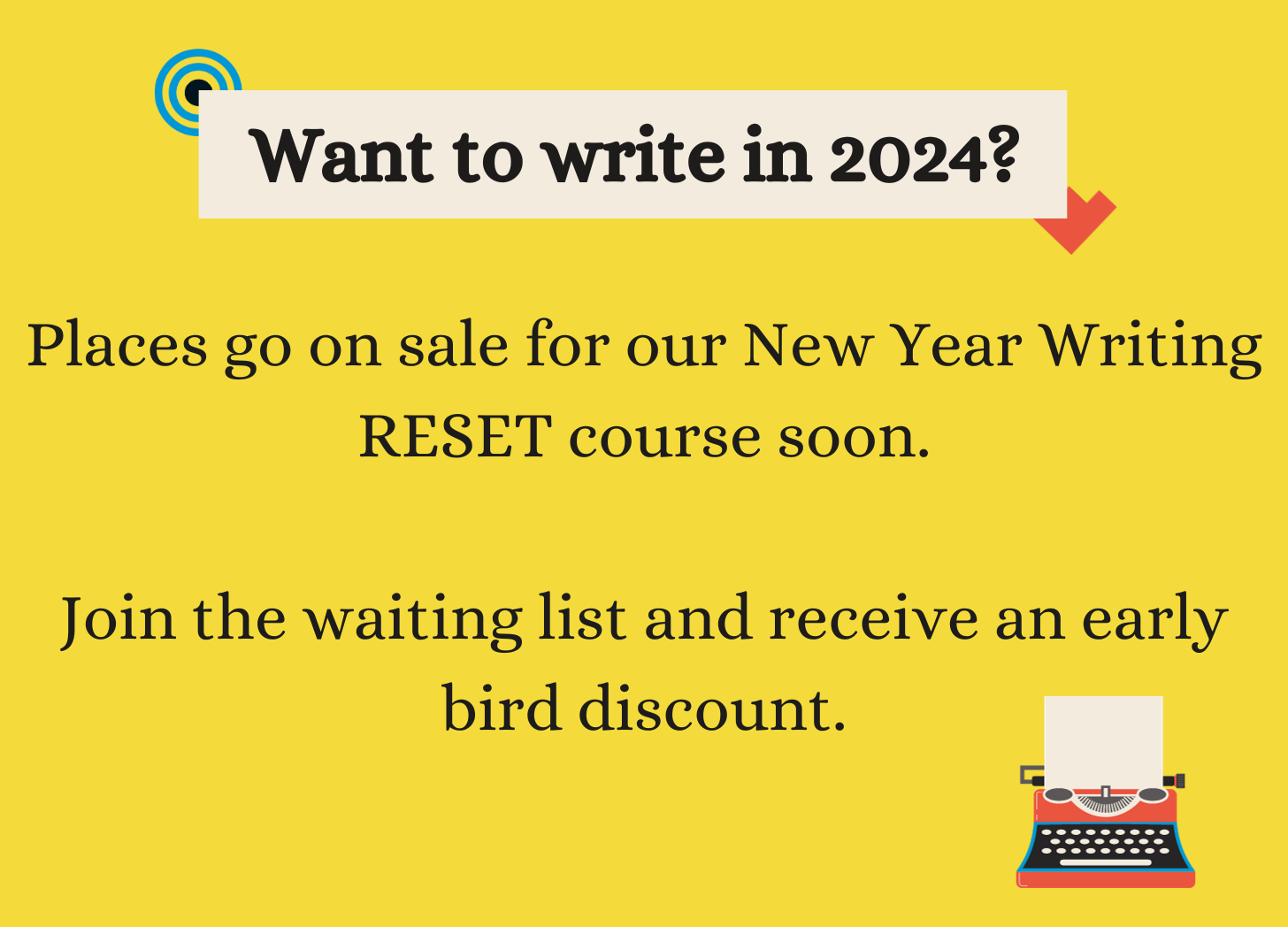The power of community 🤗
Writers are so friendly - words of wisdom from Parul Bavishi of London Writers' Salon to help you make the most of a writing community. Ritual, reflection and virtual hugs.
Hello there writing friend,
We’re back in your inbox with an early Christmas present as we wrap up our theme of the month – people.
Over the past few weeks Bec shared her love of writing accountability and how to find your people preferences and Chris asked are you a people person? His answer to that question was a resounding no! We also explored different models of writing groups looking at whether to compete or collaborate.
Monday’s tip was all about writing serendipity and how other people increase your luck surface area. Parul Bavishi of the London Writers’ Salon encouraged us to find our tribe. Today, we go deeper with her advice for joining a writing community and building ritual and reflection into your writing routine. I hope you enjoy her words of wisdom.
“Every published writer that we have spoken to or interviewed has said that they found solace and support among fellow writers. Writer Amal Al-Mohtar spoke about her writing group as being the place where she leveled up. Writer and teacher Julia Cameron says that when we are discouraged, we need 'believing mirrors' - people who see our potential and the potential of our work. This is what I believe a writing group or a fellow writer can offer."
Parul Bavishi
After interviewing hundreds of successful and bestselling writers for their events and podcast, one thing emerged: Writers need other writers!
“My hope for you, and for every writer that joins us, is that you find your tribe, that writer or group of writers who make you feel like you belong.”
As social animals our desire for community runs deep. Parul talked about the sense of belonging that is fostered in school and work, and how being part of a community can help us to learn, to impact others, to find meaning, connection and a sense of significance.
“If you're unsure whether you're a community person, that's fine. You can choose how engaged you want to be in any community. But perhaps it's worth trying”
It can be intimidating to join a group, so Parul’s advice is to start small. If you show up to an online community like Writers’ Hour, keep your camera off while you settle in. Take it step by step. It isn’t about being extroverted. Find your own way in.
“The myth of the lone artist is just that, a myth. Writers don't have to be alone, there are communities and groups of all shapes and sizes that can offer you a home, who can sit beside you and who can offer you a virtual hug, or a real hug, when times get tough.”
Yes, you have to be the one who gets the writing done, but it doesn’t need to be a miserable experience. Writing in community offers solidarity, you can share your work or your frustrations, you can find writing buddies or even co-authors. Many writing groups offer opportunities to meet and talk, like London Writers’ Salon midweek mingle.
“Casper Ter Kuile, the author of The Power of Ritual talks about how everyday practices can be turned into rituals, which can be a way to bring meaning into our lives. Can we make an hour of writing sacred? Perhaps we can. One way we do this is to start our daily online writing sessions with the ritual of sharing our intentions in the chat and then we raise a mug. Such a small action is a collective gesture that signals we are about to enter the sacred creative space, together.
Both Matt and Parul are big coffee drinkers and they always have a cup of something hot to hand. In the very first Writers’ Hour, Matt raised his mug – ‘cheers!’ – and the writing began. It became a mainstay of the structure – not just a signal but a ritual.
“During the writing session, we write in silence. It doesn't matter what you're writing, it matters that you show up. At the end, we bring the group back with light music and ask people to check out.”
Allowing people to interact with each other and reflect together adds more meaning to the hour. As well as the opening check-in where people share their goals, the end of the session is signalled with some music and a check-out where people reflect on how it went in the group chat. These are core elements of forming a habit but when done in community it is even more powerful. As well as sharing their progress, writers support each other, celebrating success, offering advice, likes and comments that connect and increase a sense of belonging.
“Writers are so friendly. Sometimes I look around the room of writers and reflect on how different we are. But we're united in our love of creativity, this is what binds us. This is why we find kinship amongst writers.”
She’s right! Writers just get it - they understand why it matters that you find time to write, that you make progress on your draft, that you meet a deadline. Finding your tribe can do wonders for your writing life.
Thank you for reading and being part of our tribe - you’re the best. Click the heart or add a comment and we’ll be back in your inbox next week as we race towards the end of the year and reassess our progress.
Keep writing, Bec & Chris
Links we love ❤️
‘The 6 Stages of the Creative Process’ shared with love from Hattie Crisell, of In Writing a gift to cheerlead you through your project.
A reader sent us this Instagram post from Gretchen Rubin which summarises her Four Tendencies in a neat video. Watch it gretchenrubin. Thank you Beth for sending to us 😊
Austin Kleon on networks of creativity, called scenius “a portmanteau Brian Eno coined to describe the communal origin of creativity that arises out of a scene. … It is my belief that most people who want to be creative would be served best not by worrying about genius but by trying to create or join a scenius.” Read his maps of creativity.
Another Kleon theme is how to steal like an artist. This post from brilliant Annie Murphy Paul (whose work we love) outlines the theory of ‘copy and paste’ from Professor Katy Milkman (she of the fresh start). Read the joy of imitiation and how we can learn from others.
If big groups aren’t your thing, but you’d like some people power, how about an accountability partner? Read: The buddy boost: how ‘accountability partners’ make you healthy, happy and more successful (once you get past the rather bizarre opening example, you’ll find out how writers buddy up).
I love this Esquire article on the rise of literary friendships.
But sometimes it’s not all about friendships. Do not underestimate the motivation you can get from having a nemesis. I return to this piece about Roxanne Gay a lot: Get yourself a nemesis - it is behind a soft paywall so check out this more recent article from Stylist.









Thank you for sharing all the wonderful links. This month's theme has been very helpful.